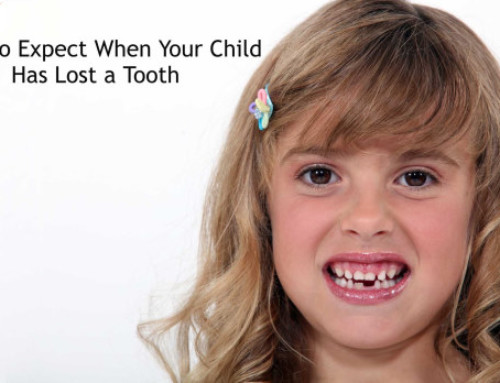 Grownups must know the value of regularly flossing in combination with brushing teeth everyday. This is also crucially important for the well-being of our youngsters. It is equally critical to develop a flossing habit in kids as it is to prompts them to brush their teeth routinely. This is because brushing alone does not extract all dental plaque, tartar, and the hazardous germs and bacteria buried within. Through flossing, it can effectively eliminate food debris, bacteria, and plaque that have become wedged between teeth. Forming a flossing routine earlier benefits the improvement of your children’s oral health in many ways. Getting better and improved oral health can lead to considerable savings, fewer possibilities of experiencing a toothache, and the reduction of the onset of various dental health concerns. Therefore, you may be thinking about how you will motivate your child to floss when he or she would rather be doing other things instead. Check out the unique ways and innovative ideas to demonstrate to your child that flossing can also be exciting!
Grownups must know the value of regularly flossing in combination with brushing teeth everyday. This is also crucially important for the well-being of our youngsters. It is equally critical to develop a flossing habit in kids as it is to prompts them to brush their teeth routinely. This is because brushing alone does not extract all dental plaque, tartar, and the hazardous germs and bacteria buried within. Through flossing, it can effectively eliminate food debris, bacteria, and plaque that have become wedged between teeth. Forming a flossing routine earlier benefits the improvement of your children’s oral health in many ways. Getting better and improved oral health can lead to considerable savings, fewer possibilities of experiencing a toothache, and the reduction of the onset of various dental health concerns. Therefore, you may be thinking about how you will motivate your child to floss when he or she would rather be doing other things instead. Check out the unique ways and innovative ideas to demonstrate to your child that flossing can also be exciting!
Get Them to Understand How Important Flossing Is
Regularly and properly brushing your teeth can eliminate most dental plaque and food particles. However, brushing alone is not enough for completely removing food particles and tartar that have been stuck in certain corners of the mouth where the toothbrush cannot penetrate, such as between the teeth or beneath the gums. Flossing is necessary in this case. It effectively removes food debris that has become lodged between the teeth. They could become breeding grounds for bacteria and germs if left unattended, potentially resulting in the creation of plaques. Alert your child that if they do not floss daily, they risk developing periodontal diseases like gum disease, bad breath (Halitosis), or increased plaque accumulation and severe cavities in their teeth.
With your child, stress the importance of flossing in preventing these dental disorders. If plaque is not removed, it can cause problems not only with the teeth but also with the gum tissue, which can result in serious complications. According to the American Academy of Periodontology, a discipline devoted to gum health, an individual must brush and floss his or her teeth at least 2 times everyday. By doing so, the chances of you developing gum disease are reduced.
Numerous dentists consider that flossing is just as essential as brushing. Regrettably, it is a more difficult regimen to develop, in part due to numerous parents’ negative attitudes on flossing. As with permanent teeth, baby teeth must be brushed and flossed consistently. Not only can proper and regular dental hygiene effectively protects your children’s teeth from cavities but it can also help lower your child’s risk of getting gum disease or any type of periodontal disease. Nurturing your youngsters and educating them on proper oral hygiene practices will help avoid dental caries and tooth pains. Maintaining regular flossing is a somewhat joyful activity, and it is necessary to convey this to your kids.
Alternatively, you can ask your kid’s pediatric dentist to discuss and underline the value of flossing during one of your kid’s regular dental appointments. Pediatric dentists are proficient and experienced in conveying difficult ideas to children and are certain to do it more effectively than most parents.
Read more on when your kid start losing baby teeth
Tricks to Make Them Enjoy Flossing
Even if flossing is not always enjoyable or engaging, it doesn’t have to be perceived as a bothersome duty. Trying to make flossing exciting for your youngster will facilitate the creation of a consistent habit. With enough attention, commitment, and dedication, you may be able to assist your child in building lifelong oral hygiene practices. Many recommendations and strategies for convincing your child to floss routinely include the following:
- Floss With Your Child or With the Entire Family – You must not expect your child to practice good and correct dental hygiene if they do not know the procedures. If you wish to nurture in your youngster a liking to flossing, then you can floss together with your child. It’s generally more fun and encouraging to do complicated tasks with another individual, specifically if the other person is a family member. You can form a family custom of brushing and flossing teeth on a routine basis. Apart from that, this will help make sure that your personalized flossing regimen is adhered to.
- Consider making Flossing a Fun Game – To excite your children, you must construct an attractive and entertaining game that also contains insight into the value of flossing. Whether your children play against each other, their parents, or the clock, turning monotonous duties into amusing games can help make flossing more pleasant. Track the progress of your child and give them rewards, or have them floss to a fun music or tale. In whatever manner you decide to liven up the flossing session, keep in mind to reward your youngster for accomplishing the task successfully. Create an entertaining chart or scorecard in which you can reward your youngster for flossing properly with a star or sticker. The more stars the kids earn, the more valuable the rewards become. As the stickers increase, the value of the prizes also increases. Don’t forget to switch up the prizes on a constant basis to get your child engaged.
- Draw up a Flossing Chart or Table – Designing an attractive and entertaining flossing chart and hanging it above or near the bathroom sink is one of the most innovative and exciting ways to encourage your child to floss everyday. This increases flossing enjoyment by letting you track their progress with colorful stickers or markers, build a precious family custom that your youngsters will cherish for years ahead, and present non-monetary rewards for properly completing the task.
- Allow Your Kids to Choose Their Flossing Devices – It may be difficult for your child to use traditional floss. They may struggle with wrapping the string around their fingers or putting the dental floss between their teeth. Allowing your child to select their preferred floss sticks or water flosser eliminates this problem. Floss sticks come in a variety of colorful colors, attractive designs, and enticing flavors. Youngsters may even come upon a brand that portrays their favorite superhero or cartoon figure. If you want to save money and avoid replacing dental floss totally, water flossers are cheaper. They typically last around years and are widely regarded as more practical and efficient flossing devices than traditional flosses Furthermore, water flossers allow your child to design them.
- Regular examinations of their ‘Big-Kid Teeth’ – The period between losing primary teeth and the emergence of ‘big-kid teeth’ is fascinating for a kid. It’s not just because the tooth fairy will pay a visit; it’s also because seeing those new brilliant white teeth appear out of nothing can often seem mystical and amazing to a child. Instruct your children to examine their ‘big-kid teeth’ areas everyday or every night before bedtime, explaining that this is to ‘create sufficient space’ for healthy and strong permanent teeth to develop. Develop their own mouths into an investigation or exploration site akin to the dinosaur bone dig display at the local museum.
Once Flossing caused concerns for your child
Your child’s gums may bleed the first time they floss their baby teeth. This is a rather frequent event. It is often not a problem as long as the bleeding is stopped soon. Additionally, some children may have an exceptionally sensitive mouth or a severe gag reflex, which makes flossing uncomfortable. To ease this concern, express to your child that it is acceptable for them to pause flossing and take a break if they become irritated or uncomfortable. Helping them to take a few deep, steady breaths can assist in their relaxing. If your kid is autistic or has behavioral issues, he or she is more prone to have dental problems, such as difficulty in flossing their teeth. You can attempt to find a pediatric dentist who is knowledgeable in treating children with particular needs.
Sources:

